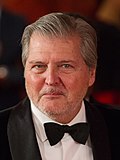| Secretary of State for the European Union | |
|---|---|
| Secretario de Estado para la Unión Europea | |
 Coat of Arms used by the Government | |
| | |
| Ministry of Foreign Affairs, European Union and Cooperation Secretariat of State for the European Union | |
| Style | The Most Excellent (formal) Mr. Secretary of State (informal) |
| Abbreviation | SEUE |
| Reports to | The Foreign Minister |
| Nominator | The Foreign Minister |
| Appointer | The Monarch |
| Precursor | Minister for Relations with the European Communities |
| Formation | February 27, 1981 |
| First holder | Raimundo Bassols |
| Website | exteriores.gob.es |

The secretary of state for the European Union (SEUE) is a senior official of the Spanish Ministry of Foreign Affairs, European Union and Cooperation. The SEUE is appointed by the Monarch on the advice of the Foreign Minister.
Contents
The secretary of state is responsible for designing and implementing the government's policy within the European Union. Likewise, he assists the foreign minister in the formulation and execution of Spain's foreign policy in the geographical area corresponding to the countries of the European Union, candidate countries, countries of the European Economic Area and other European countries —except Eastern Europe—. It also manages issues arising from Spain's membership in the Council of Europe. [1]
As the highest official after the Foreign Minister in European Union affairs, the secretary of state is responsible for overseeing the actions of the different bodies of the different national administrations within the European Union as well as overseeing and giving orders to the Permanent Representative of Spain to the European Union. [1]














